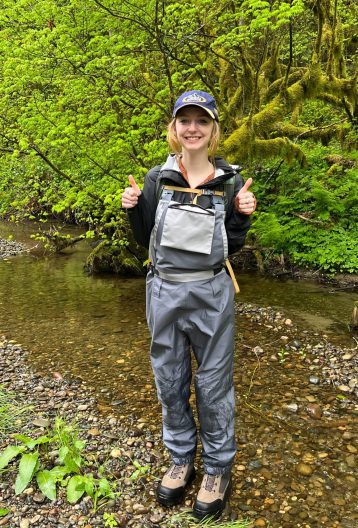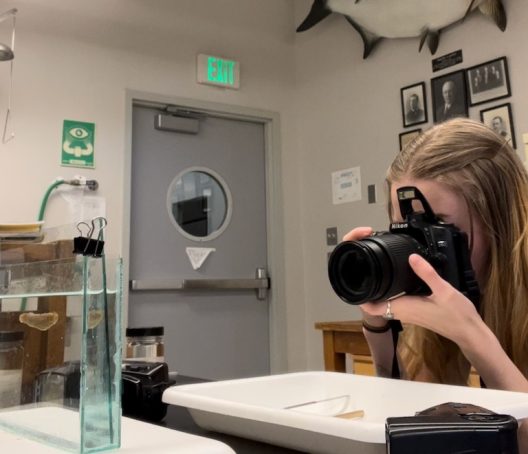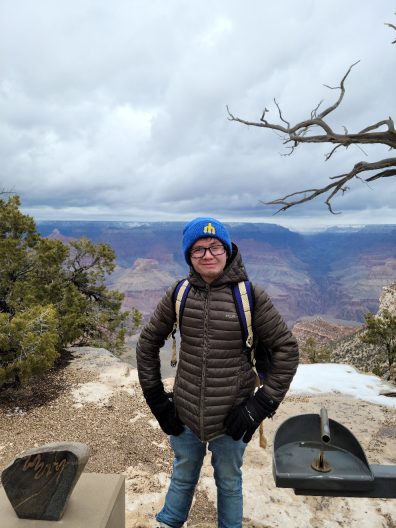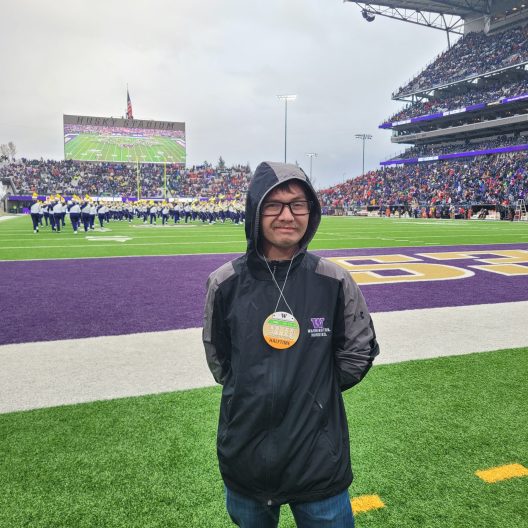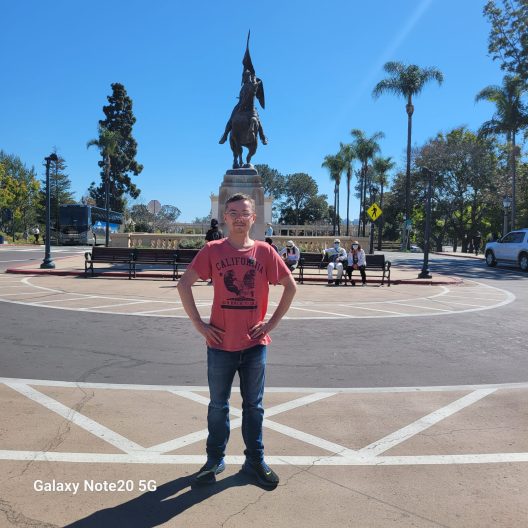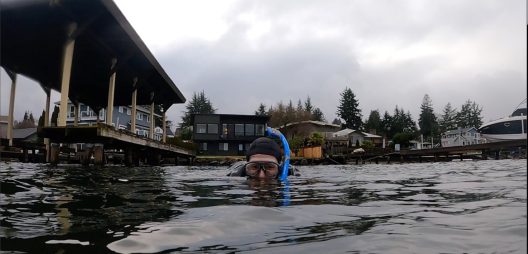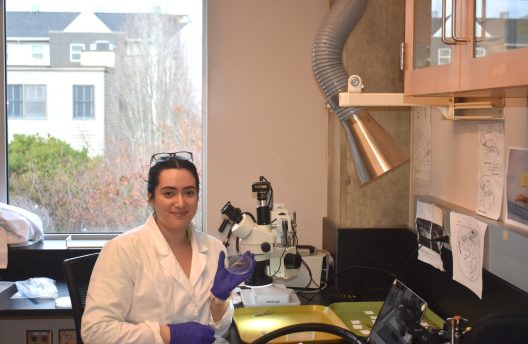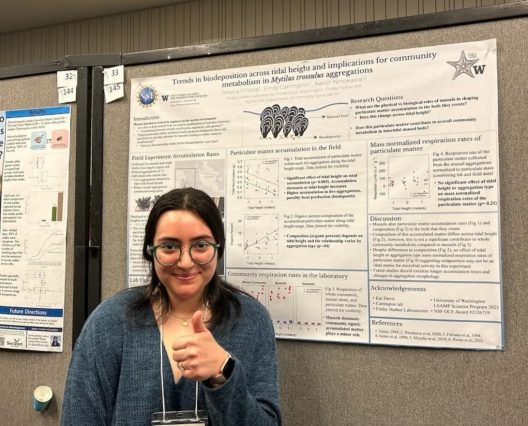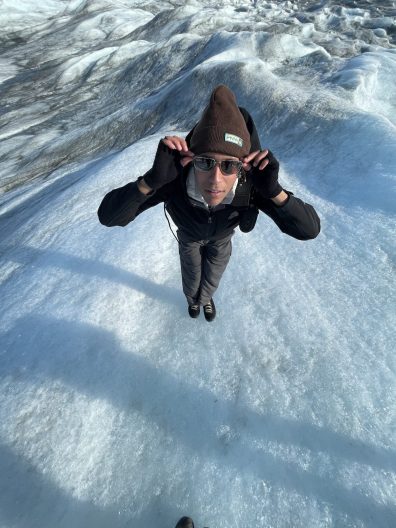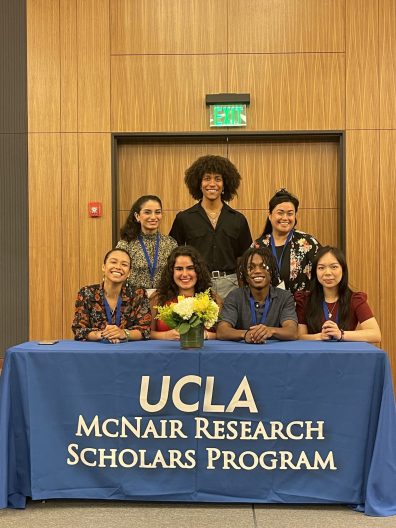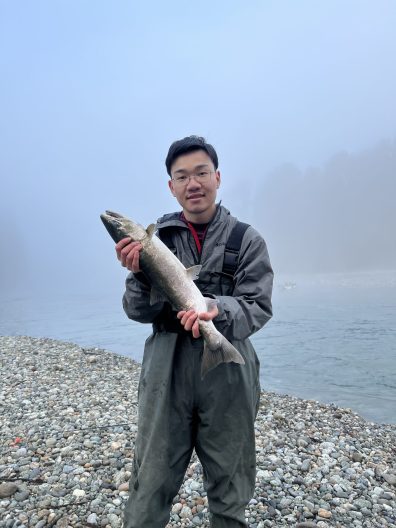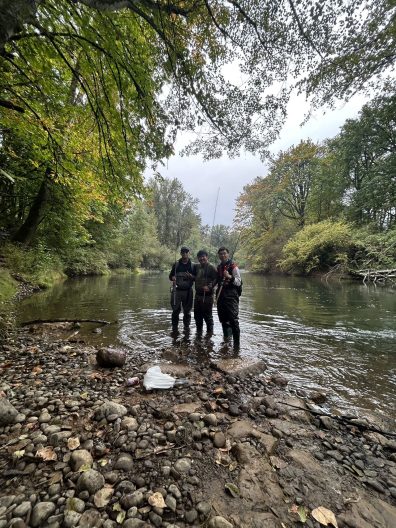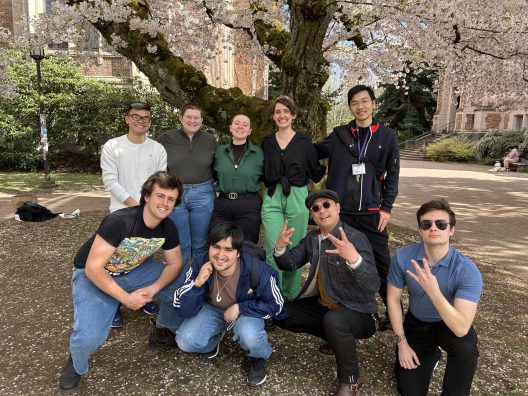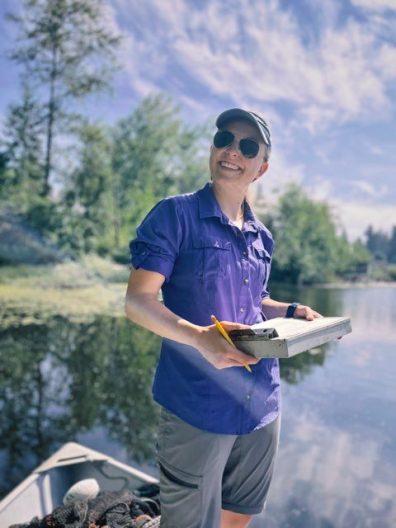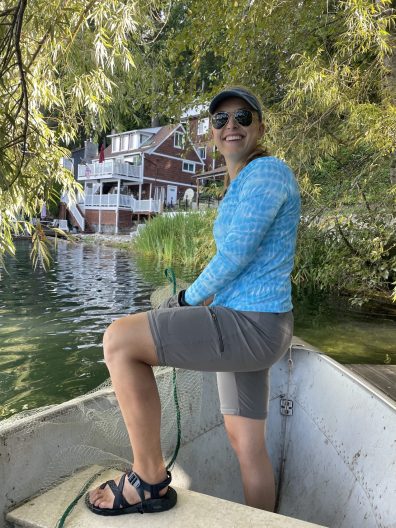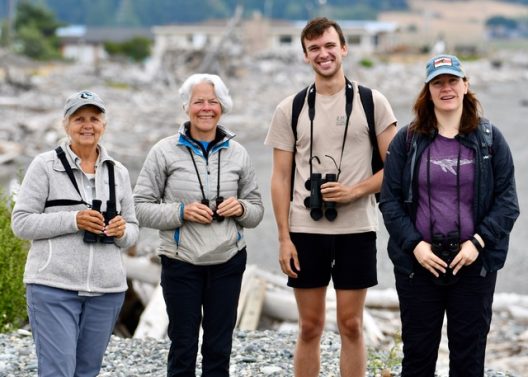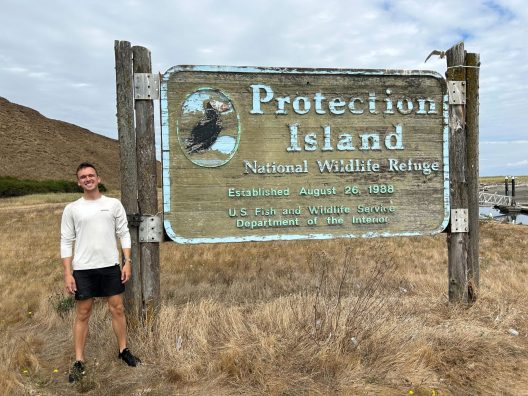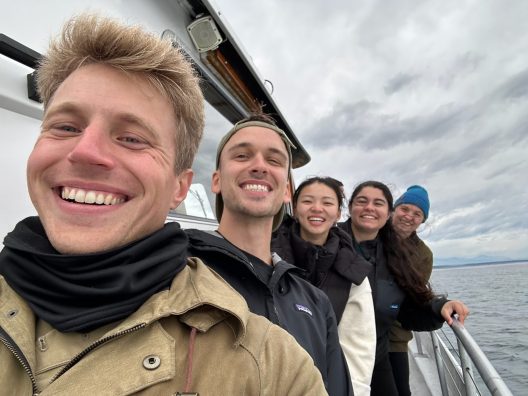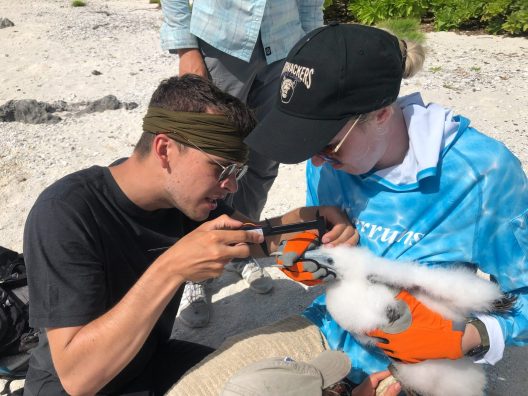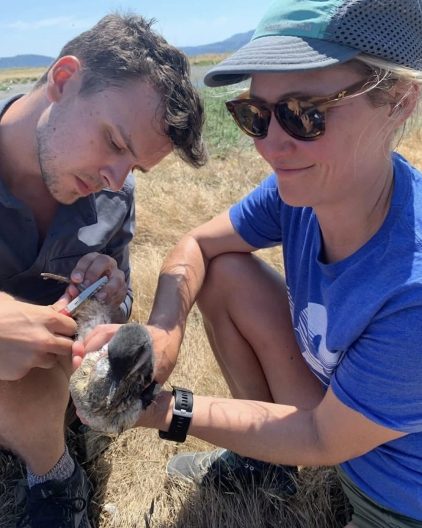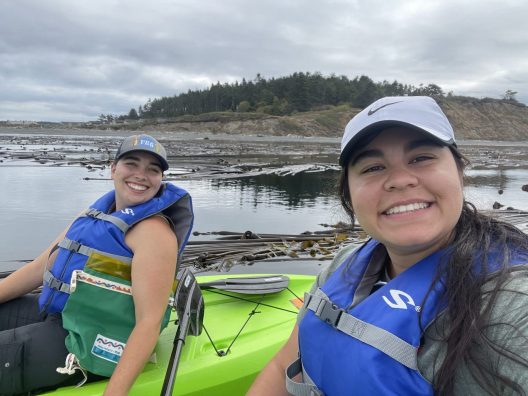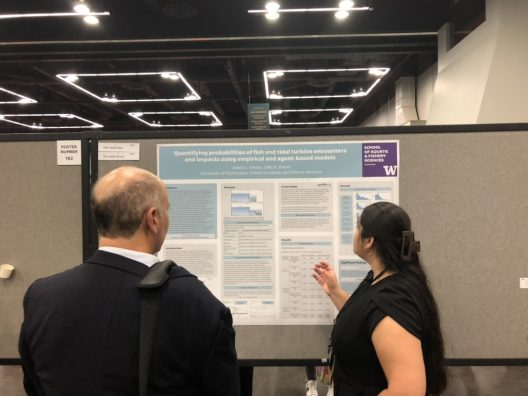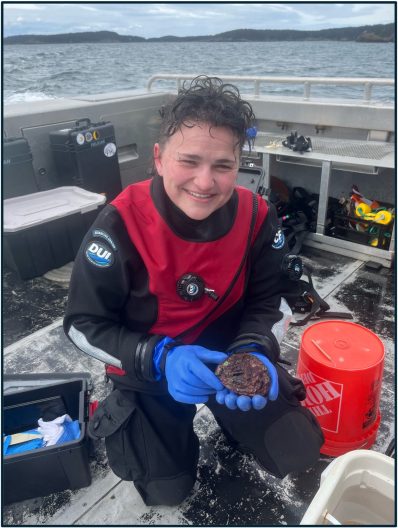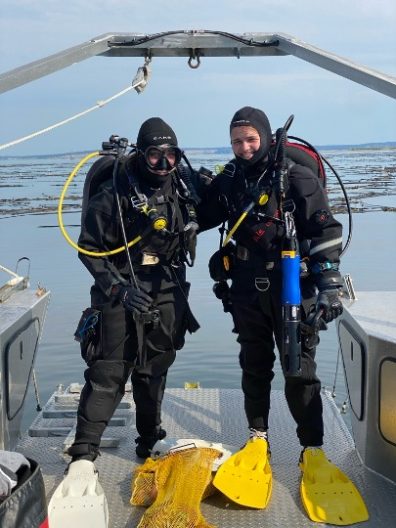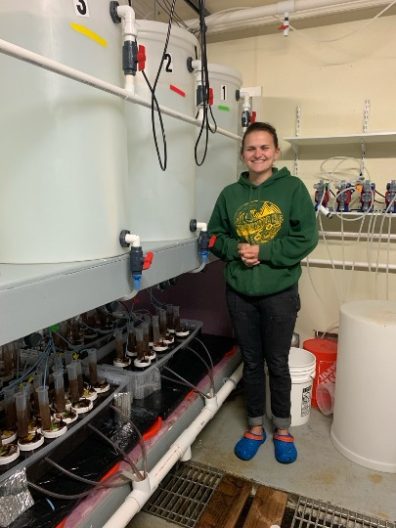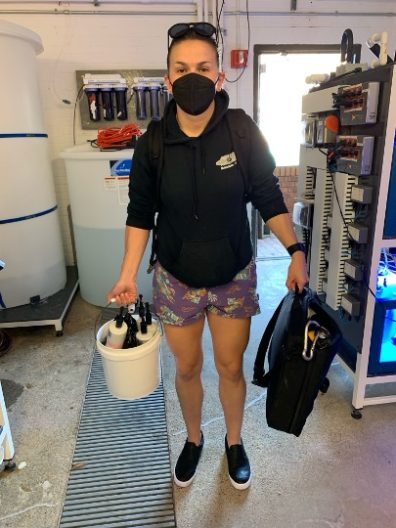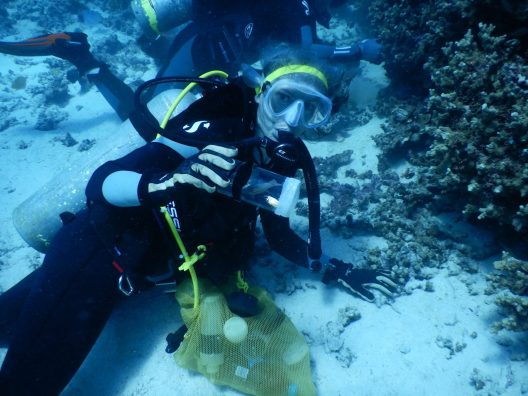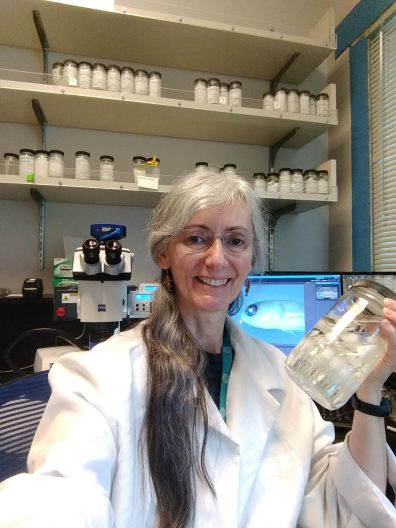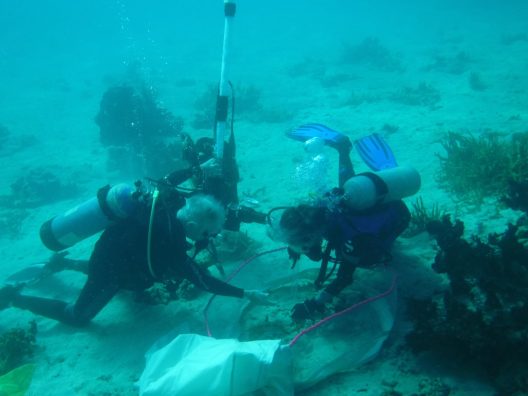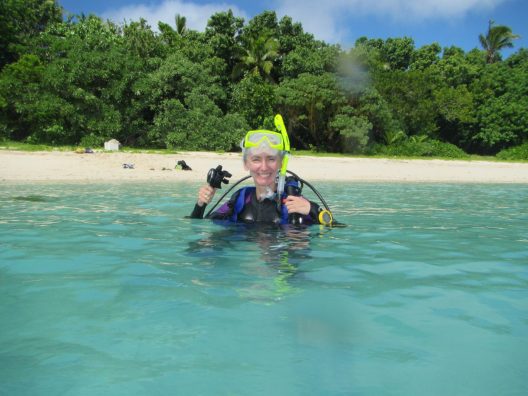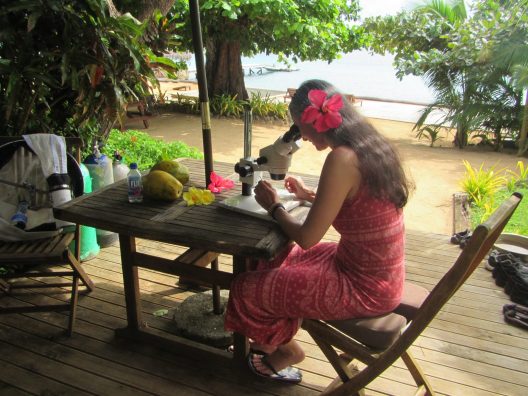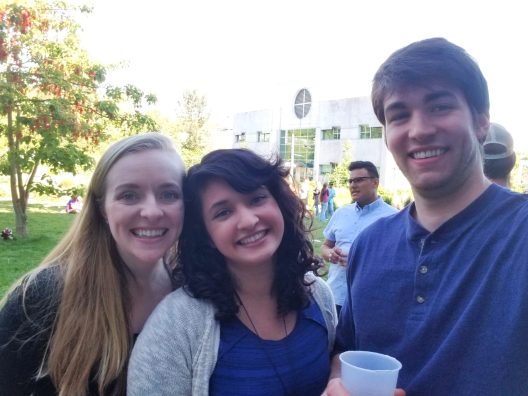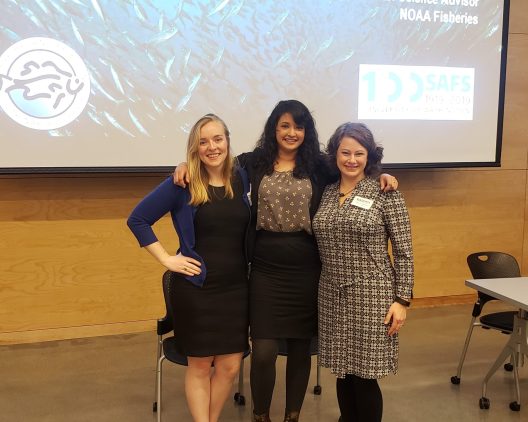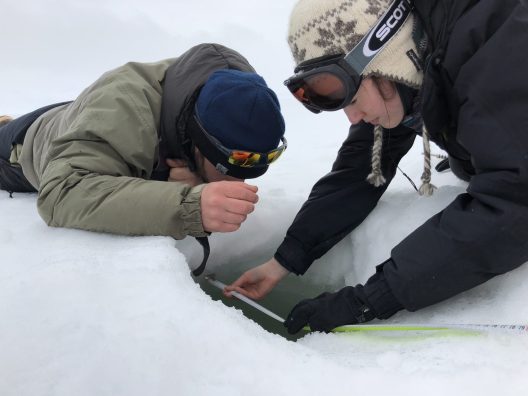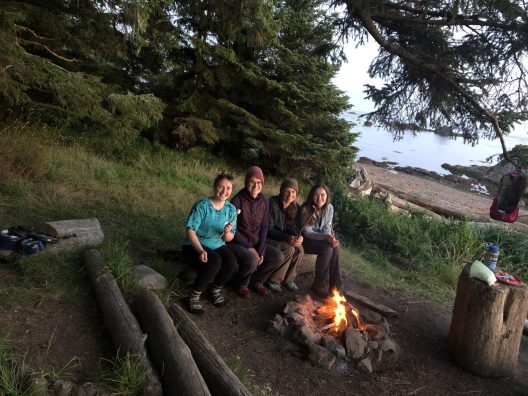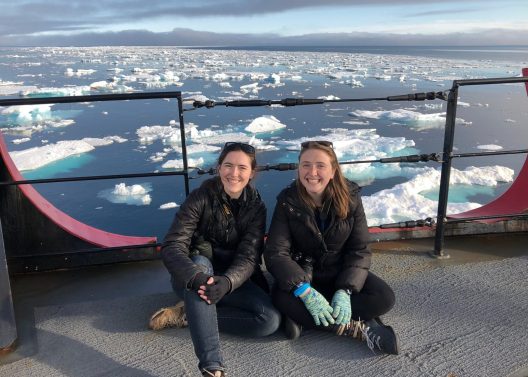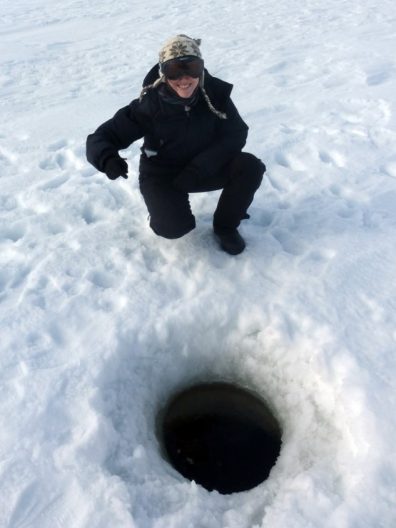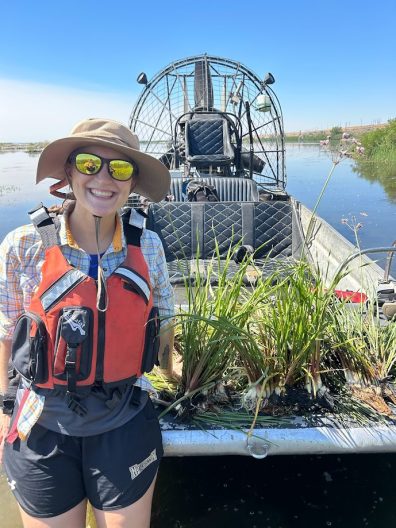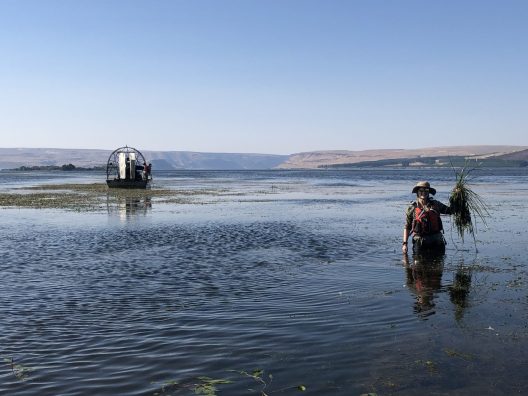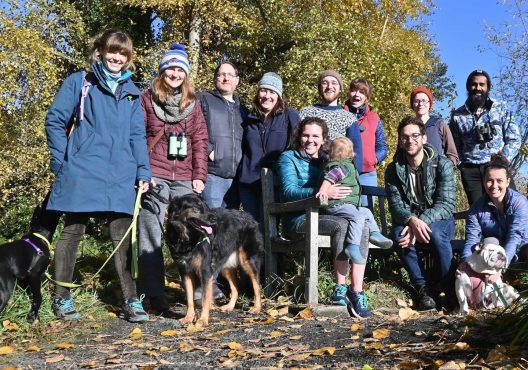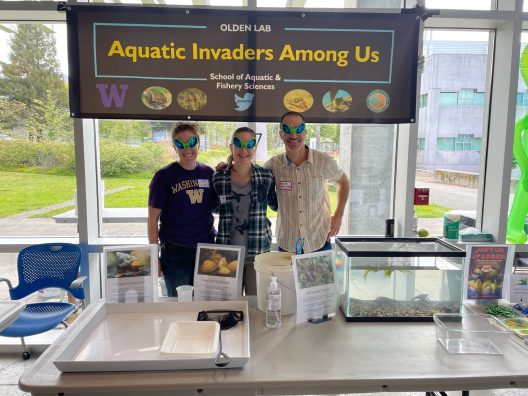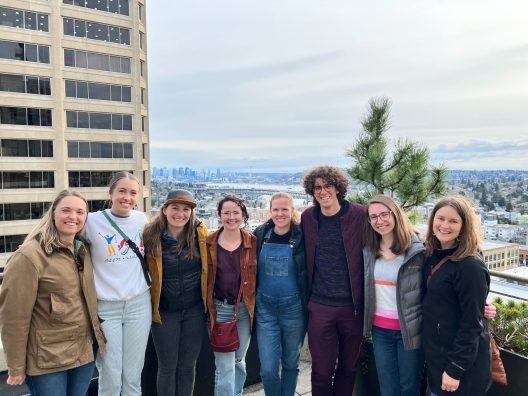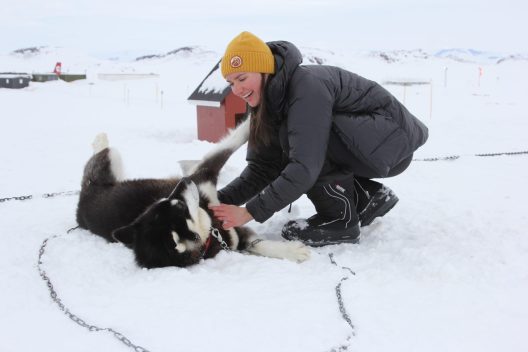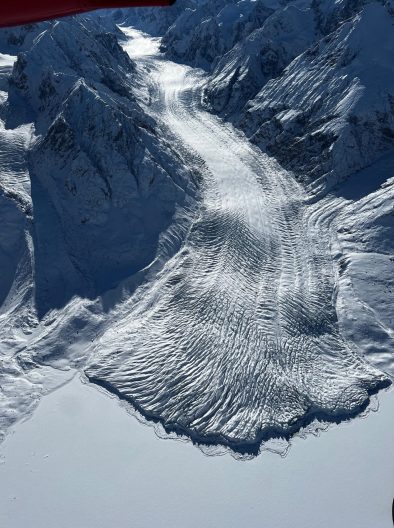Spring 2024 Graduation
Congratulations to all our graduates!
To celebrate this year’s class, we have posted photos and anecdotes of our graduates on this page. Click a name below to expand and learn more about them!
Bachelor of Science
Keegan Lee Bach
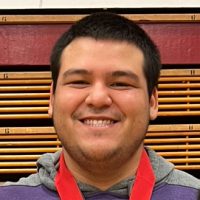 Thesis
Thesis
Peer exchange of pet aquatic organisms in the United States
Documenting the exchange of freshwater aquarium organisms through various pathways. Highlighting the rates of release, knowledge of fish keepers, and concern within the community. Overall, showcasing the importance of informing people to not release their pets.
Adviser
Julian Olden
What was your best memory while at Safs?
Winning all of the field trip competitions in Greg’s invert class.
What was your favorite FISH class and why?
FISH 311, because the labs were fun and hands on. Plus the lab practical was the best testing experience I have ever had.
What is your go-to comfort food?
Gummy frogs
What kind of things do you like to do when you’re not being a SAFS student?
Chop down trees, remove black berry bushes, and take care of my fish.
Do you have an accomplishment you’d like to highlight while at SAFS?
All American heavyweight wrestler 2024.
Who would you like to thank/recognize and why?
Thankful for my family for supporting me, Dr. Olden for putting up with my capstone, and my wrestling teammates for giving me an outlet.
Do you have a favorite quote/saying?
“Hit it, don’t babysit it” -Coach Nelson
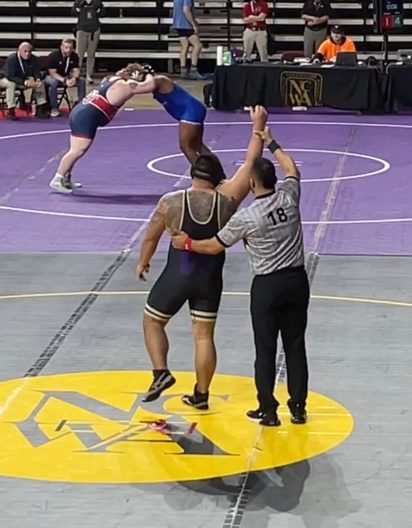
Emma Bell
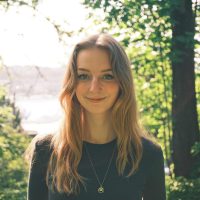 Thesis
Thesis
The Morphological Constraints of a Shrimp-Goby Mutualism
I photographed and analyzed photos of gobies to determine if body size and morphology is constrained when associated with shrimp in a mutualistic relationship. Using morphological data and a phylogenetic tree I found how shrimp and non-shrimp gobies are evolving their bodies.
Adviser
Luke Tornabene
What was your best memory while at Safs?
Getting a giant loan of preserved gobies from the Smithsonian to photograph for my capstone.
What was your favorite FISH class and why?
Biology of Fishes kickstarted my love for phylogenetics. The jars of fish are a big plus too!
What kind of things do you like to do when you’re not being a SAFS student?
I love getting outside, whether its hiking, camping, or just a nearby park.
Who would you like to thank/recognize and why?
I would like to thank my uncle for passing his passion for fish and the natural world to me.
Tyler Cordova
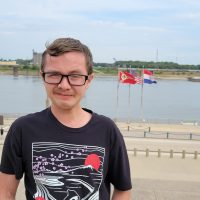 Thesis
Thesis
Using simulations to explore bias-precision tradeoffs in fisheries independent data
My capstone uses computer simulations to explore the impact of different combinations of sample size and observation error on fisheries data precision. This information can be used by decision makers to balance the tradeoffs between cost and data precision when deciding how often to conduct research surveys.
Adviser
Andre Punt
What was your best memory while at Safs?
Spending the fall 2022 quarter at Friday Harbor Labs.
What was your favorite FISH class and why?
FISH 461: Fisheries economics. I loved this class because it explored the real-life implications of different fisheries management strategies and how they impact people and communities involved in the fishing industry.
What is your go-to comfort food?
Beef stroganoff.
What kind of things do you like to do when you’re not being a SAFS student?
Watching basketball/Hockey, playing dungeons and dragons and other board games.
Do you have an accomplishment you’d like to highlight while at SAFS?
Robert E. Resoff scholarship winner; dean’s list autumn 23 and winter 24.
Who would you like to thank/recognize and why?
I would like to thank my parents, Holly and Derek Cordova, for encouraging me and always supporting me through my academic journey. I would like to thank every SAFS professor who I have been associated with, but especially Luke Tornabene for making me realize how much I loved fish, Andre Punt for giving me such a unique capstone opportunity, Chelsea Wood for showing me the wonderful world of parasites, Chris Anderson for teaching me the economics side of fisheries, and Matt Baker for everything at Friday Harbor. Furthermore, I’d like to thank Mico Kinneen, for your excellent guidance on my capstone project, as well as Katie Leslie, Emily Jameson, and Emily Bishop for helping me grow my lab and research experience. Finally, I want to thank all of my fellow SAFS undergrads for making this a great 4 years.
Do you have a favorite quote/saying?
“Friendship is the third most powerful kind of magic. The most powerful is of course, chrono-magic, the second most powerful is called ‘utter nonsense”- The Professor
Baxter Givans
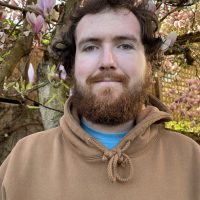 Thesis
Thesis
Determining the Origins of Stranded Sea Turtles on the South African Coast
I am using genetic analyses to determine where sea turtles stranded in South Africa are originally from. I am comparing the genetic data from previously obtained samples to genetic data from global populations to find similarities that would indicate region of origin. My results will then be used by a PhD student in South Africa as part of a larger project on the ecology and biology of South African sea turtles.
Adviser
Laurenz Houser
What kind of things do you like to do when you’re not being a SAFS student?
I like hiking and looking for snakes and salamanders as well as fishing. I also enjoy watching football and baseball.
Who would you like to thank/recognize and why?
I want to thank my family for all of their support because I would not have made it to this point without them.
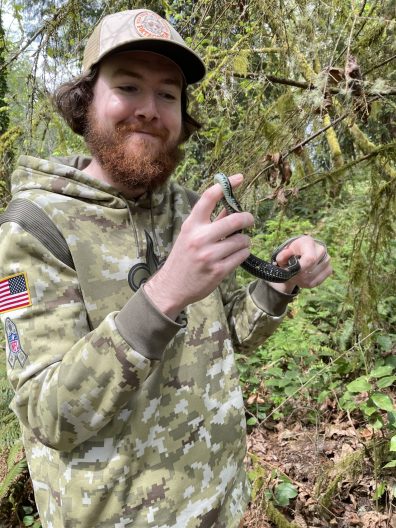
William Le
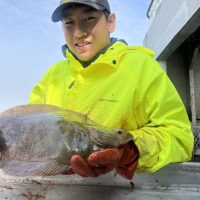
Thesis
Quantitative Examination of the Extent of Cohort Dominance in Alaskan Arctic Char
I analyzed size data in Arctic char to determine if cyclic periods of increasing and decreasing body size in the population coincided with their natural lifespans. This was done to investigate if dominant cohorts, which suppress subsequent generations, are present in the population.
Adviser
Daniel Schindler
What is your go-to comfort food?
Com tam (Vietnamese broken rice).
What kind of things do you like to do when you’re not being a SAFS student?
Fishing, kendo (Japanese fencing).
Who would you like to thank/recognize and why?
I would like to thank my family, friends, and advisors for their support, encourage, and insight throughout my time at SAFS.
Jessica Pineda
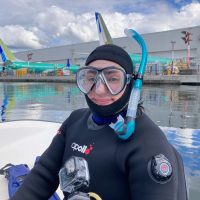
Thesis
Morphological Characterization of Non-indigenous Palaemon macrodactylus in the Salish Sea
I studied a shrimp species that has been observed within the region over the past few years. I used a collection of frozen shrimp that was provided through the efforts of Washington Sea Grant Crab Team, to gathered data on size, whether females had eggs, and other biological characteristics. I analyzed data to compare trends in growth between male and female shrimp. Further study is aimed at understanding how these shrimp have changed over time and throughout the sampled regions.
Adviser
P. Sean McDonald and Emily Grason
What was your best memory while at Safs?
Anytime I got to take part in a laboratory session that was stinky, dirty, or outdoors. Some of my favs include boiling fish to piece together bone structures in the Biology of Fishes class, exploring the guts of a spiny dogfish shark in Parasite Ecology, and studying characteristics of the Alki Beach intertidal for the Marine Invertebrate course.
Do you have an accomplishment you’d like to highlight while at SAFS?
Working with the spectacular WET research group; I get to be in the field and do science, underwater.
Who would you like to thank/recognize and why?
Oodles of thanks to my capstone advisors, Dr. P. Sean McDonald and Dr. Emily Grason, for allowing me to take on this project and for the time they have dedicated toward guiding me along the research process. I am especially appreciative of having been provided with my past experience as a dissection intern for the Crab Team, offered to me by Dr. Grason; that experience provided me with the jumping-off point to be able to continue engaging in so much more research and field work during my time at the UW.
Yajaira Ponce Moran
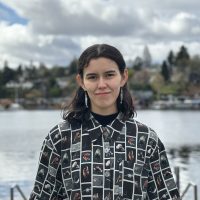
Thesis
Toxicity of Cedar Wood to Daphnia magna
I researched the toxicity of volatile leachates from yellow cedar wood on water fleas (Daphnia magna).
Adviser
Frieda Taub
What was your favorite FISH class and why?
All of them, especially the ones where I got to touch fish.
What is your go-to comfort food?
Tacos.
What kind of things do you like to do when you’re not being a SAFS student?
Fishing.
Do you have a favorite quote/saying?
“Counting fish is like counting trees, except they are invisible and they keep moving.” – John Shepherd
– Every fisheries scientist ever
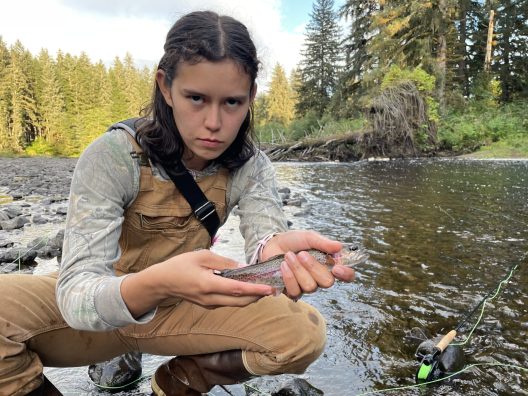
Katherine Rogers
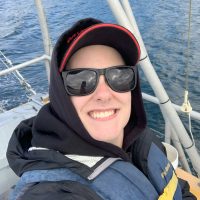 Thesis
Thesis
A new species of Stegastes damselfish in the Gulf of Mexico and a more detailed look at Stegastes xanthurus
We identified a new species of damselfish living in the Gulf of Mexico using photographs and genetics.
Adviser
Luke Tornabene
What was your best memory while at Safs?
Working at the Burke Fish Collection.
What was your favorite FISH class and why?
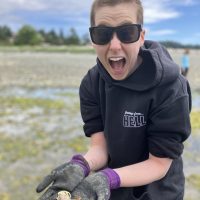 FISH 311 Biology of Fishes because it made me fall in love with fish morphology and taxonomy.
FISH 311 Biology of Fishes because it made me fall in love with fish morphology and taxonomy.
What is your go-to comfort food?
White cheddar mac and cheese.
What kind of things do you like to do when you’re not being a SAFS student?
Watch One Piece.
Do you have an accomplishment you’d like to highlight while at SAFS?
Finishing my capstone.
Who would you like to thank/recognize and why?
I would like to thank all the professors who helped fan the flames of my enthusiasm.
Do you have a favorite quote/saying?
“No matter how hard or impossible it is, never lose sight of your goal.” -Monkey D. Luffy”
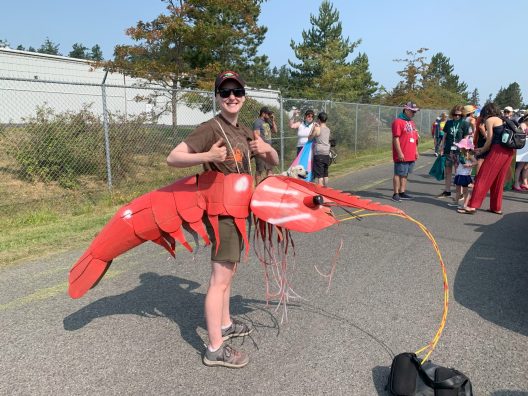
Cristian Swift
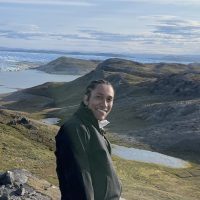 Thesis
Thesis
Enhancing Early Warning Systems for Domoic Acid Toxicity in Washington State Shellfish Fisheries
On the U.S. West Coast, toxic blooms of the diatom Pseudo-nitzschia are associated with domoic acid, which can cause Anemic Shellfish Poisoning in humans and marine life, resulting in public health concerns and negative economic impacts. I worked with the Olympic Region Harmful Algal Bloom (ORHAB) Partnership, which has federal, state, and tribal ties, to determine whether current thresholds of particulate domoic acid in seawater and Pseudo-nitzschia abundance, developed previously by ORHAB, are still useful for determining potential toxic bloom events.
Adviser
Vera Trainer and Chris Free
What was your favorite FISH class and why?
Introduction To Quantitative Ecology, taught by Tim Essington, was my favorite FISH class because most of my research is qualitative and I gained many useful skills and a greater appreciation for ecology as a whole.
What is your go-to comfort food?
Tamales.
Zelong Wang (Eric)
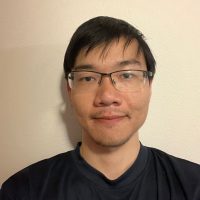 Thesis
Thesis
Effects of Covid-19 on Bristol Bay sockeye pricing
Using statistical analysis to predict the pricing of sockeye salmon in Bristol Bay without COVID and comparing it to real time data.
Adviser
Chris Anderson
What was your best memory while at Safs?
Getting to know a lot of people in the fisheries field.
What was your favorite FISH class and why?
FISH 406 Parasite ecology because it was very fun and Chelsea was super nice and patient.
What is your go-to comfort food?
Hotpots.
What kind of things do you like to do when you’re not being a SAFS student?
Fishing.
Who would you like to thank/recognize and why?
My capstone advisor, Dr. Chris Anderson, and capstone director, Dr. Greg Jensen, for guiding me through the capstone process, and every professor I had classes with for teaching me valuable knowledge. Also, my counselor, Michael, has been patient in helping me register and schedule courses. At last, my family and friends for supporting me.
Master of Science
Nicole Doran
Thesis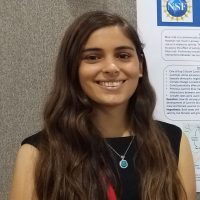
Exploring culturally meaningful definitions of justice and resilience through the lens of sovereign Indigenous foodways
My thesis covers a range of topics related to environmental justice and food justice in Indigenous communities.
Adviser
Mark Scheuerell
What was your best memory while at Safs?
I really enjoyed being a part of the IBIS program and having the opportunity to mentor a student, Olivia Anderson, in an independent research project. It was really meaningful and rewarding for both of us!
What is your go-to comfort food?
Mac & Cheese.
What kind of things do you like to do when you’re not being a SAFS student?
Hiking and playing video games.
Do you have an accomplishment you’d like to highlight while at SAFS?
Best research presentation in the field of ecology/evolution at the 2023 National Diversity in STEM Conference.
Who would you like to thank/recognize and why?
I’d like to thank my advisor, Dr. Mark Scheuerell, for being the best mentor I could have asked for in grad school. I have been pushed to achieve more than I thought possible, and given the freedom to do things in my own way. I am grateful for the opportunity to continue in your lab for the PhD!
Emily Jameson
Thesis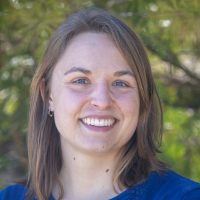
Lakeshore development and lake food web structure in the Puget Sound lowlands
I examined how residential development around lakeshores impacted the structure of aquatic food webs. I asked: Who eats whom, and how does that change as more homes are built around lakes in the region?
Adviser
Julian Olden
What kind of things do you like to do when you’re not being a SAFS student?
When not being a student I enjoy getting outside! In the summer I love hiking and swimming, and in the winter I snowboard regularly. I also enjoy playing ultimate frisbee on a semi-competitive adult recreational league.
Do you have an accomplishment you’d like to highlight while at SAFS?
While at SAFS I am most proud to have been awarded the NSF GRFP for a proposal written about my MS work. I have also had the opportunity to work with many undergraduate students throughout my time here. I supervised many who volunteered in my lab, was a teaching assistant for several classes, and mentored other students as part of the GRFP workshop put on each fall. Teaching and mentorship are really what inspire me and I am proud of all the experience I have gained as a teacher and mentor in my time at SAFS.
Liam Pendleton
Thesis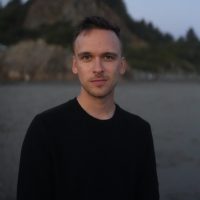
Evaluating responses and behaviors of two sentinel seabird species in the Salish Sea
Pigeon Guillemots (Cepphus columba) and Rhinoceros Auklets (Cerorhinca monocerata) are potential indicators of the marine environment within the Salish Sea, though gaps remain in what we know about how they respond to changes in their environment and how they use their habitat. In this thesis, I explore the potential impacts of marine conditions on reproductive outcomes of Pigeon Guillemots at Protection Island National Wildlife Refuge, and attempt to describe behavioral drives of movement in both Pigeon Guillemots and Rhinoceros Auklets as they meet the demands of the breeding season.
Adviser
Sarah Converse
What was your best memory while at Safs?
Forming close relationships with other students has provided me a sense of belonging and helped with the transition in moving to Seattle and starting a new chapter of my life. Whether I was going on post-work adventures with friends or working together in-office, my life was a lot easier because of them.
What was your favorite fish class?
FISH 454 with Tim Essington, as it empowered me to feel confident with modeling and my solid in my work.
What kind of things do you like to do when you’re not being a SAFS student?
Biking, birding, and playing video games!
Do you have an accomplishment you’d like to highlight while at SAFS?
Attending the really fun Pacific Seabird Group conference to share my work with others and to meet other bird-minded people!
Who would you like to thank/recognize and why?
My family, friends, and other loved ones, and definitely the Converse Lab for their support over the past few years. Possessing the solid network of relationships I do has made moving across the country and going through this program far easier than it otherwise would have been.
Jezella Ileana Peraza
Thesis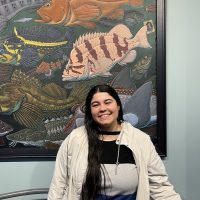
Probabilistic Empirical and Agent-Based Encounter-Impact Models for Fish and Tidal Turbine Interactions
My thesis covered developing empirical and agent-based simulation models to estimate potential interactions between fish and tidal turbine devices in Admiralty Inlet, Puget Sound, WA. Our objectives aim to advance marine renewable development to reduce reliance on fossil fuels, and mitigate the impacts of climate change.
Adviser
John Horne
What was your best memory while at Safs?
I’ve had lots of great memories during my time in SAFS! Any social events as a department have always been a blast. The graduate student symposium, grad retreat, spring picnics. Anything with great food and cool people!
What was your favorite FISH class and why?
My favorite FISH class was Tim Essington’s 5-teens course that covered science communication and public speaking. It was a class with such a positive atmosphere and allowed me to step out of my comfort zone and have fun.
What is your go-to comfort food?
Anything sweet or spicy!
What kind of things do you like to do when you’re not being a SAFS student?
When I am not being a SAFS student, I like to spend time with friends, being outdoors, trying new foods, and dancing!
Do you have an accomplishment you’d like to highlight while at SAFS?
During my time at SAFS, I was able to communicate my research at one international and two national conferences. I also published my first scientific paper in Frontiers in Marine Science. It was also a proud accomplishment to be awarded the SAFS 2023 DEIJ and Community Service recognition award.
Who would you like to thank/recognize and why?
I’d like to thank my family and friends for their endless love and encouragement during my time at SAFS. I’d like to thank the Horne and Berdahl labs for their friendship, support, and answering all my questions – making my time here as a student much more enjoyable.
Do you have a favorite quote/saying?
“In this life we cannot always do great things. But we can do small things with great love.” Mother Teresa
Emily Sellinger
Thesis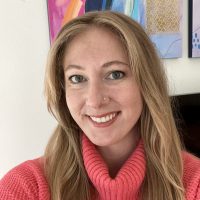
Characterizing and forecasting fish recruitment in a changing world
Recruitment, the entry of young fish into a stock, is an important but challenging process to model. This thesis examines if there is a detectable influence of the number of adult fish on recruitment and how well we can forecast recruitment.
Adviser
Andre Punt
What was your best memory while at Safs?
Friday happy hours with the Punt lab.
What was your favorite FISH class and why?
FISH 576/577 because I really enjoyed getting a first hand experience with the stock assessment process.
What is your go-to comfort food?
ice cream.
What kind of things do you like to do when you’re not being a SAFS student?
I like to bird, knit, and cook.
Who would you like to thank/recognize and why?
My friends and family for keeping me sane through graduate school and my advisor Andre for his support and expertise.
Kali Stone
Thesis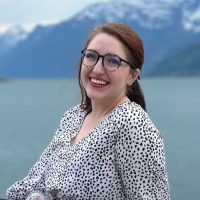
Hatch timing, growth, and condition of juvenile Arctic cod (Boreogadus saida) in a warming Arctic: insights into overwinter survival strategies
Arctic cod is a critical component of the Arctic food web and is known to be at risk to continued warming in the region for a number of reasons. During their first year of life, it is critical that Arctic cod get large and store a lot of energy to survive through the first long, cold, dark winter period. My work used fish otoliths (“ear stones”) to compare the hatch dates and growth rates of juvenile Arctic cod caught in thermally distinct years (which affects how large they can get), examined whether fish were more focused on energy storage or growth as they entered first winter, and evaluated what observed differences mean for this species in the context of climate change.
Adviser
Tim Essington, Thomas Helser, Anne Beaudreau, Matthew Baker
What was your best memory while at Safs?
My favorite memory would have to be an international conference (in Norway!) I was able to attend and present at thanks to support from my advisor, SAFS FINS, and the University of Washington Graduate School.
What was your favorite FISH class and why?
That would have to be a tie between Tim Essington’s presentation course (so sorry I can’t remember the formal name Tim) and Trevor Branch’s Beautiful Graphics in R course. Each of these courses helped me to really elevate how I present my science to others and encouraged me to be more creative and thoughtful in my work.
What is your go-to comfort food?
Burritos!
What kind of things do you like to do when you’re not being a SAFS student?
Spending time with my husband and children, playing soccer, and game nights (with a soft spot for Magic the Gathering).
Who would you like to thank/recognize and why?
I would like to thank my advisor Tim Essington for his invaluable insights and infectious enthusiasm throughout this journey. I would also like to thank my committee members Thomas Helser, Anne Beaudreau, and Matthew Baker for their encouragement and thoughtful guidance these past few years. And finally, I thank my husband, children, and my parents who have cheered me on, kept me caffeinated, and supported my dreams, I love you guys!
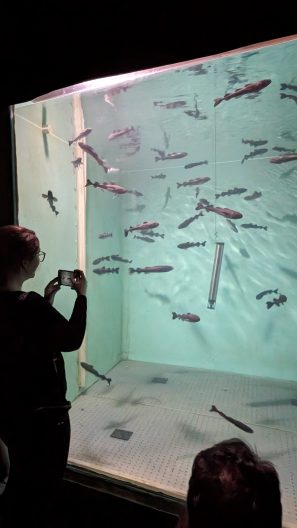
Doctor of Philosophy
Grant Adams
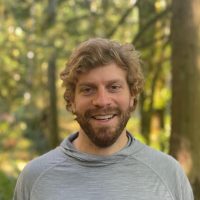 Thesis
Thesis
Development and testing of single- and multi-species models for fisheries management under climate change
I evaluate if ignoring the impacts of predators in the the management of prey fisheries results in poor performance of our current fisheries management. I also test if incorporating predator-prey dynamics into fisheries management improves management performance. I found the current management approach of not accounting for the impacts of predators is robust and including predator-prey dynamics into fisheries management may not necessarily lead to better management.
Adviser
Andre Punt
What was your best memory while at Safs?
Friends and colleagues.
Jeremy Axworthy
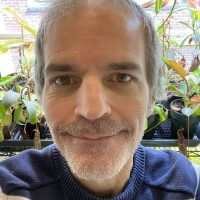 Thesis
Thesis
Climate Change and Microplastics: Their Impacts and Interactions with Corals and Coral Reefs
For my dissertation I looked at how coral bleaching affects proteins and microplastic ingestion in reef building corals, as well as other factors that affect coral and microplastic interactions. I also surveyed a coral reef in Hawaii for microplastic pollution. This work increases our understanding of how climate change and pollution are affecting the world’s coral reefs.
Adviser
Jacqueline Padilla-Gamino
What was your best memory while at Safs?
The many rants and conversations I’ve had with my lab mates.
What was your favorite FISH class and why?
FSH 427 Tropical Marine Biology because I got to help develop and teach it.
What is your go-to comfort food?
Burritos and cheese its.
What kind of things do you like to do when you’re not being a SAFS student?
Hang out with my son and grow carnivorous plants.
Who would you like to thank/recognize and why?
The entire Padilla-Gamino lab and my family.
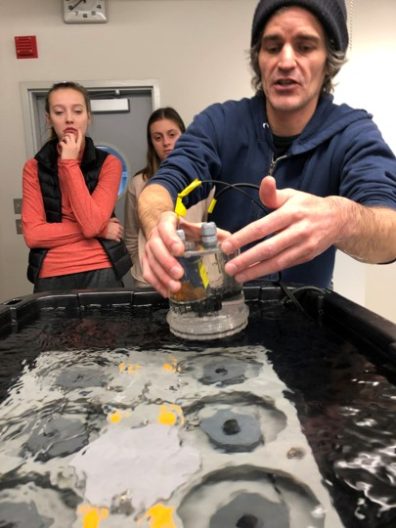
Eileen H. Bates
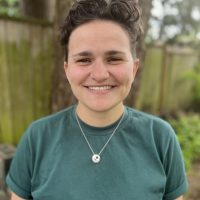 Thesis
Thesis
Impacts of climate change and habitat on the health and recovery of Salish Sea shellfish
The first chapter of my dissertation studied trace metal accumulation in oysters and mussels from different locations in Puget Sound, exploring impacts of spatial and oceanographic differences. The rest of my dissertation focused on restoration of pinto abalone–two hatchery-based experiments assessing climate change and substrate impacts on settlement and survival, and one field-based study comparing oceanographic conditions between restoration sites. These chapters will help shape restoration practices for endangered pinto abalone in Washington State.
Adviser
Jackie Padilla-Gamino
What was your best memory while at Safs?
Diving in the San Juans!
What was your favorite FISH class and why?
Tough to admit….but multivariate statistics was such good exposure to something I hadn’t learned in undergrad and so helpful to a future in the sciences.
What is your go-to comfort food?
Kraft mac and cheese.
What kind of things do you like to do when you’re not being a SAFS student?
Climbing, skiing, spending time in the sunshine 🙂
Do you have an accomplishment you’d like to highlight while at SAFS?
I’m glad I got show many chances to share my work with peers, the public, and other scientists at conferences.
Who would you like to thank/recognize and why?
I’d like to thank my family for their support, and for bringing me to Washington’s beaches as a kid 🙂
Marta Cristina Gómez-Buckley
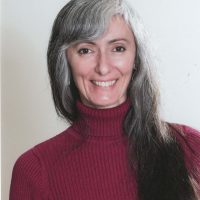 Thesis
Thesis
Cryptobenthic Coral Reef Fishes: Resolving Critical Gaps in Taxonomy, Phylogenetic Relationships, and Sampling Techniques
A large portion of coral reef fishes are part of what has been labeled “the hidden half” of the total diversity in tropical marine ecosystems. This understudied group are called cryptobenthic reef fishes or CRF, and they comprised 40% of the total species richness and 50% of the numbers of all coral reef fishes. Improving collection methods for CRF and increasing efforts to understand their taxonomic and genetic diversity are essential to future studies trying to unravel how marine coral ecosystems function and are affected by natural and anthropogenic impacts.
Adviser
Luke Tornabene
What was your best memory while at Safs?
I remember fondly TAing for the Biology of Fishes, Marine Biology, and Fishery Ecology courses. I thoroughly enjoyed teaching the lab sessions for these courses and the many memorable field trips. Sharing the excitement of students learning about complex anatomy and diversity of fishes, or their first experience being on board of fishing/research vessels, or electrofishing in a river, was priceless.
What was your favorite FISH class and why?
I really enjoyed the statistic classes. I thought it was very good for me to retake the QSCI482 Statistical Inference in Ecology. I had taken this class in 1995 during my MS degree at the School of Fisheries. The basic statistical principles were the same, but the differences in how the analyses is performed now using R language was substantial. Both times I was fortunate to have outstanding Instructors, professors Loveday Conquest and Trevor Branch.
What is your go-to comfort food?
Home made chocolate chip cookies!
What kind of things do you like to do when you’re not being a SAFS student?
I enjoy visiting with my family. I really enjoy being outdoors hiking easy trails, canoeing in Eld inlet, and doing gardening at home with my husband 🙂 I also love flamenco and dancing with my friends at our monthly gig at a restaurant in Olympia.
Do you have an accomplishment you’d like to highlight while at SAFS?
I have been the TA for 12 courses during my degree. I am very honored to have received the 2024 SAFS Faculty Merit Award.
Who would you like to thank/recognize and why?
My advisor, Luke Tornabene, has been patient, understanding, and a terrific mentor overall. I also would like to thank my family (Ray, my husband, and Adriana, my daughter). I would not have been able to get my degree without their ardent support.
Do you have a favorite quote/saying?
In multiple occasions when I’m at the doctor’s, or at the bank, or at the grocery store and it comes up that I’m a Marine Biologist, I hear people say: “I wanted to be a marine biologist! but…” to what I respond, you can still be!! and I tell them about our Marine Biology, and Aquatic and Fisheries programs at SAFS 🙂
Melissa Krigbaum Merscher
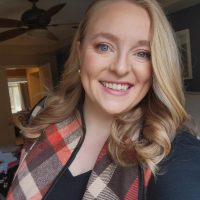 Thesis
Thesis
The Economic Dynamics of Gear Choice in U.S. West Coast Sablefish Fisheries
US West coast sablefish are targeted by heterogeneous fleets and multiple gear types, which impacts fishery outcomes through differentiated sizes, prices, trip costs, and revenue from jointly caught species. My dissertation investigates these dynamics one by one, culminating in a calibrated fleet dynamics model where effort allocation and quota trading is driven by expected profit. This model is integrated into a decision support tool, allowing us to illuminate what policy analysts might miss if these economic dynamics are excluded from analysis.
Adviser
Chris Anderson
What was your best memory while at Safs?
I was invited to do a talk at the 100th SAFS anniversary Bevan symposium on ‘Why Economics Matters for Management’. It was a surreal experience because the room was absolutely packed with icons of the fisheries world. It was the first time I felt like a contributing part of this community, rather than just a student of it.
What was your favorite FISH class and why?
Andre’s 559 class – it was hard, but we learned so much and were really pushed to a new level of understanding. My favorite part was the ADMB boot camp at Friday Harbor Labs – like a mini summer camp for nerds, with beautiful views, frustrating code, and Pepsi max.
What is your go-to comfort food?
A really good sandwich, or a late-night bowl of cereal.
What kind of things do you like to do when you’re not being a SAFS student?
I’m a really big sports fan. I also like to cook, take walks with my dog, go camping and see live music.
Do you have an accomplishment you’d like to highlight while at SAFS?
Right as I finished my coursework at SAFS I was hired to work on the Economic Data Collection team at the Northwest Fisheries Science Center. I’ve worked there ever since and it has shaped my PhD more than anything else.
Who would you like to thank/recognize and why?
“First and foremost, I wouldn’t be here today without the unwavering support of my husband Casey, my parents, my sister and-brother in-law, and my wonderful friends. They have gone on this crazy journey with me and never stopped believing I could do it, even when I did. I’d like to thank Chris, my advisor, for teaching me to always be inquisitive and for teaching me what it means to think like an economist in a fisheries science world. And I’d like to thank my NWFSC family, especially Erin Steiner and Marie Guldin, for being my sounding boards and biggest champions. Plus, all the amazing SAFS students I’ve gotten the chance to meet over the years, with a special shoutout to Kristin PJ and Sarah O’Neal for all their support, laughs, and groundedness this last most chaotic year.
Jessie Lindsay
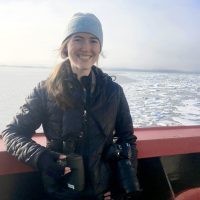 Thesis
Thesis
Ringed seal (Pusa hispida) lair habitat, emergence timing, and reproductive ecology in relation to snow characteristics in a changing Arctic
My dissertation research focused on the spring denning habitat of ringed seals, which are ice-associated seals that give birth to their pups in snow-covered lairs. My research approach included knowledge co-production with Alaska Native Elders, on-ice data collection, aerial survey data from manned and unmanned aircraft, satellite remote sensing, and haul-out data from tagged ringed seals. The results of this work will help inform aerial survey planning for ringed seal population assessments, and will help us to better understand how changes in snow and sea ice conditions may impact ringed seals.
Adviser
Kristin Laidre
What was your favorite FISH class and why?
Tim Essington’s Ecological Modeling class, which taught me a lot while also being lots of fun!
What is your go-to comfort food?
Berries!
What kind of things do you like to do when you’re not being a SAFS student?
Spending time with my cat, painting wildlife, picking berries, taking care of my houseplant jungle, drinking lots of tea, and reading sci-fi/fantasy novels!
Who would you like to thank/recognize and why?
Thanks so much to my adviser, committee, labmates, family, and friends for all of your support!
Brielle Kwarta Thompson
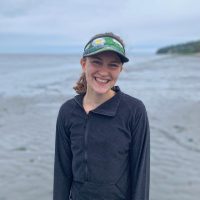 Thesis
Thesis
Quantitative modeling tools for invasive species management decisions
Invasive species can threaten biodiversity and cause harm to the environment, economies, and human health. In my dissertation, I demonstrated ways in which quantitative models can be used to evaluate invasive species management outcomes in a virtual environment before on-the-ground management is implemented.
Adviser
Sarah Converse and Julian Olden
What was your best memory while at Safs?
I loved volunteering for many SEAS outreach events where I hopefully inspired the next generation of aquatic scientists!
What was your favorite FISH class and why?
I will always have fond memories of the weeks spent at Friday Harbor Labs for Andre Punt’s workshops.
What kind of things do you like to do when you’re not being a SAFS student?
If I am not at SAFS, you can find me running the streets of Seattle with the Green Lake Running Group or walking through neighborhoods with my husband, Alex, and pup, Bandy.
Who would you like to thank/recognize and why?
I would like to thank my advisors, Sarah Converse and Julian Olden, all the members of the Converse and Olden labs, and the QERM program at large. Thank you to all my friends and family who have supported me from afar, and thanks mom for always answering my post work phone calls. I would like to especially thank my husband Alex for all your support, patience, and love.
Do you have a favorite quote/saying?
“Long live all the mountains we moved, I had the time of my life fighting dragons with you.” – Taylor Swift
Marie Zahn
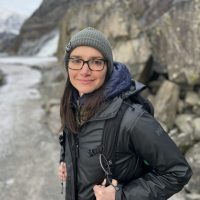 Thesis
Thesis
Quantifying features of Arctic odontocete echolocation and marine habitat variation in West Greenland
The Arctic is warming four times faster than the rest of the globe, leading to dramatic changes in the marine habitats of resident whale species. I used underwater sound recordings and physical oceanography to study the sounds produced by belugas and narwhals in their summer marine habitat in Greenland. My research revealed that beluga and narwhal echolocation signals are distinctly different, allowing us to study their movements and behavior using acoustics. Additionally, my findings highlight the vulnerability of their nearshore habitats to climate change, as glacier melt accelerates due to warming oceans.
Adviser
Kristin Laidre
What was your best memory while at Safs?
Having the opportunity to see both of my study species, the beluga and narwhal, in Greenland from a plane!
What was your favorite FISH class and why?
I really enjoyed Hot Topics during my first quarter, because we were able to have engaging conversations with SAFS faculty and learn about a wide variety of disciplines as I joined the school.
What is your go-to comfort food?
Definitely fresh salmon poke with avocado.
What kind of things do you like to do when you’re not being a SAFS student?
Adventuring with friends in the backcountry, including hiking, camping, sailing, and foraging for edible mushrooms.
Do you have an accomplishment you’d like to highlight while at SAFS?
I served as a board member and Open House Committee Lead for the SEAS (Students Explore Aquatic and Fishery Sciences) outreach program. In this role, I helped organize our annual spring Aquatic Sciences Open House event that was open to the public to share exciting research being conducted at the UW. It was so rewarding to see families and kids be inspired by the research that we’re all working on at SAFS.
Who would you like to thank/recognize and why?
My adviser, Kristin Laidre, for her unwavering support and encouragement throughout my PhD. I also want to thank my partner, Sam, and my family for being constant cheerleaders.
Do you have a favorite quote/saying?
“Keep some room in your heart for the unimaginable.” – Mary Oliver
Honoring the Class of 2024 Graduates – Graduation Gift
College of the Environment Graduation Gift
In appreciation of the 2024 College of the Environment graduating class, the College is partnering with the Campus Sustainability Fund to fund the Wapato Pond project for the UW Farm, a student powered urban farm that provides locally grown produce to UW students, staff, faculty and the greater community. This gift will help fund the development of Wapato Pond, a new growing space for the cultivation of aquatic, freshwater Indigenous food crops such as wapato, increasing the Farm’s food production and diversity of produce. We are excited to support this project and the increased sustainability of our Husky community.
SAFS Graduation Gift
In honor of the 2024 graduating class, SAFS will make a donation to Washington MESA. The Washington Mathematics, Engineering, Science Achievement (MESA) program is an educational pathway program administered by the University of Washington and established by the Washington State legislature. MESA provides enrichment and access opportunities to science, technology, engineering, and mathematics (STEM) programs for grades 6–12 and college students across the state with the goal of increasing representation of historically underrepresented students of color and women in STEM fields. They provide students with tutoring, specialized courses, mentorship, and supportive networks. In addition, MESA offers training to teachers and parents so that everyone in a student’s orbit is better equipped to guide them through their educational journey.
